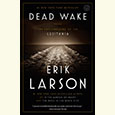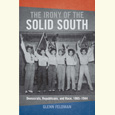The Fallout of Disaster
Vanderbilt visiting writer in nonfiction Joy Castro talks with Chapter 16
Joy Castro’s clear-eyed view of the world is grounded in hope. “What’s exciting,” she writes, “is the actual work of changing the world into a gentler, fairer, more compassionate place.” Of course, to make those changes, reality must be exposed, and Castro’s writing is fearless. Her literary thrillers, Hell or High Water and Nearer Home, sizzle in New Orleans, capturing the city’s vibrancy alongside its corruption, while her memoir, The Truth Book, recounts her personal experience with an abusive stepfather in a Jehovah’s Witness congregation.
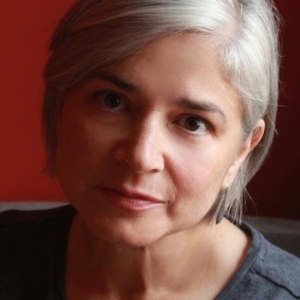 Castro is also the author of an essay collection, Island of Bones, and a collection of short stories, How Winter Began. Her work has been widely praised, earning her a Nebraska Book Award and an International Latino Book Award. A professor of English and ethnic studies at the University of Nebraska-Lincoln, she is the visiting writer in nonfiction at Vanderbilt University in Nashville this spring. Prior to her upcoming Nashville appearance, Castro answered questioned from Chapter 16 via email:
Castro is also the author of an essay collection, Island of Bones, and a collection of short stories, How Winter Began. Her work has been widely praised, earning her a Nebraska Book Award and an International Latino Book Award. A professor of English and ethnic studies at the University of Nebraska-Lincoln, she is the visiting writer in nonfiction at Vanderbilt University in Nashville this spring. Prior to her upcoming Nashville appearance, Castro answered questioned from Chapter 16 via email:
Chapter 16: Both Hell or High Water and Island of Bones were published in 2012 but feel even more relevant now, with the #MeToo movement still growing. How did your approach to the topic of sexual assault differ in writing fiction versus memoir?
Joy Castro: Yes, they do seem weirdly prescient now, especially on the heels of the recent Golden Globes ceremony—like the even earlier literary forerunners of the #MeToo movement’s cultural intervention: Maya Angelou’s I Know Why the Caged Bird Sings, Dorothy Allison’s Bastard Out of Carolina, Sandra Cisneros’s The House on Mango Street, and so on. Writers have been speaking up about sexual assault and its devastating effects for a long time. It’s great that the women of Hollywood, who command a far larger audience, are now standing up, too.
The way my own approach in the two genres of fiction and memoir differs is that, in fiction, my protagonist can behave badly but still achieve heroic ends. She can take revenge, tell people off, act selfishly, drink too much, have sex with the wrong people, and so on.
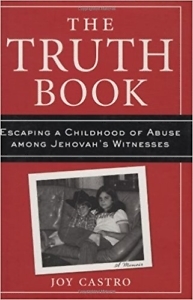 In real life, I’m pretty quiet and respectable in my habits—I’m a mother, a teacher, an academic: occupations that generally require relatively unflashy traits and practices like self-discipline, generosity, empathy, socially acceptable behavior, and delayed gratification. Though my childhood was fairly (and unpleasantly) dramatic, my adulthood hasn’t been (by choice), and when I write memoir, it has to remain faithful to that reality. Any drama is mostly interior, a movement among perceptions, recollections, and ideas.
In real life, I’m pretty quiet and respectable in my habits—I’m a mother, a teacher, an academic: occupations that generally require relatively unflashy traits and practices like self-discipline, generosity, empathy, socially acceptable behavior, and delayed gratification. Though my childhood was fairly (and unpleasantly) dramatic, my adulthood hasn’t been (by choice), and when I write memoir, it has to remain faithful to that reality. Any drama is mostly interior, a movement among perceptions, recollections, and ideas.
Fiction lets me contemplate and dramatize actions I’d never actually take. It’s cathartic that way. As profoundly as I would probably have enjoyed shooting my stepfather, and shooting other rapists, that’s not something I have actually done or would endorse doing (under most circumstances) in real life. But it’s definitely fun to imagine.
Chapter 16: Your mystery novels are set in New Orleans after Hurricane Katrina, and although I would read about Nola Céspedes in any context, that setting seems important. What prompted you to make the Crescent City central to these thrillers?
Castro: I’ve long loved New Orleans, thanks to my wonderful former husband, James, whose hometown it is. We were together for over two decades, so I traveled there many times and had an interestingly close outsider’s perspective. After Hurricane Katrina, a news item in The New York Times sparked my first novel: the revelation that hundreds of registered sex offenders had availed themselves of the opportunity of the mandatory hurricane evacuation to disappear back into society. That provoked the darker, angrier strain of my imagination.
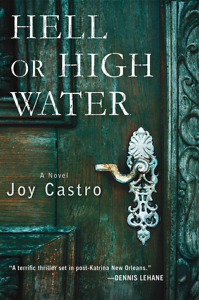 I’m also very interested in the concept of aftermath: how, long after the news cameras stop rolling, trauma continues, and cities (like people) are usually left alone to struggle with the fallout of disaster and violence, often with no help, no resources, and no support. Unfortunately, our culture seems to be interested only in the sensation and spectacle of catastrophe, not the slow, hard, unlovely work of recovery. Violence has a dramatic energy that long, patient labor lacks.
I’m also very interested in the concept of aftermath: how, long after the news cameras stop rolling, trauma continues, and cities (like people) are usually left alone to struggle with the fallout of disaster and violence, often with no help, no resources, and no support. Unfortunately, our culture seems to be interested only in the sensation and spectacle of catastrophe, not the slow, hard, unlovely work of recovery. Violence has a dramatic energy that long, patient labor lacks.
Yet some of the bravest, most beautiful people I know have devoted their lives to doing great good after they themselves were violated, and I wanted to write novels that dwelt in that unappreciated space of daily struggle, novels that spent time envisioning and caring about that story and that strength. In this way, the setting of New Orleans—damaged, gorgeous, and resistant—resonates with the fictional characters I prefer to portray.
Chapter 16: How (if at all) does crime writing in general lend itself to tackling social issues?
Castro: Crime fiction is the genre of justice. By imagining alternative scenarios, dramatizing different routes, and sketching fairer futures, authors can actively intervene in readers’ perceptions of reality. We can even implicitly posit different definitions of what justice could be: what constitutes a crime, what counts as violence and violation. So yes, I think crime fiction can make a very provocative intervention in issues of social justice.
Perhaps literature has only a slowly, subtly accreting impact, but it’s an impact nonetheless; it affects people’s deeply held understandings of how we should treat one another, how we should respond when someone violates our agreed-upon moral codes, and what those codes should be. Due to this power, writers may well be, as Shelley contended, the unacknowledged legislators of the world—and who’s interested in acknowledgment anyway? Receiving attention is passive, boring. What’s exciting is the actual work of changing the world into a gentler, fairer, more compassionate place.
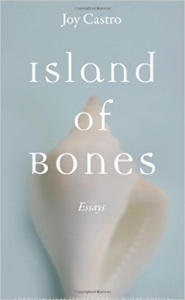 Obviously, not all crime fiction does this kind of visionary work, or wants to; some is purely formulaic entertainment, and some crime fiction even seems designed to titillate and exploit our most voyeuristic tendencies to no appreciable end. But many crime writers, like writers working in other forms, do hold passionate, optimistic, even utopian visions about the way the world should and could be, and our novels share those visions.
Obviously, not all crime fiction does this kind of visionary work, or wants to; some is purely formulaic entertainment, and some crime fiction even seems designed to titillate and exploit our most voyeuristic tendencies to no appreciable end. But many crime writers, like writers working in other forms, do hold passionate, optimistic, even utopian visions about the way the world should and could be, and our novels share those visions.
Chapter 16: In a recent op-ed piece for the Lincoln Journal Star, you responded to three senators who questioned the core values of the University of Nebraska-Lincoln’s English Department. How have recent political events affected your own classrooms?
Castro: Thus far, they haven’t. Other than acknowledging the obvious fact that the current larger political context makes our work as humanities educators and students even more crucially urgent, I stick to the analytical and creative tasks at hand.
Chapter 16: In an interview with Alex Espinoza for The Los Angeles Review of Books, you described language as a “veil,” an apt metaphor for the way communication can be simultaneously beautiful and obscuring. How does language influence our understanding of reality?
Castro: Language—once we’re immersed in it, once we’ve acquired it—shapes our apprehension of reality almost entirely. It’s extremely difficult—not impossible, but really hard—for us, as social animals, to think thoughts that cannot be articulated in language—which is only to say, thoughts that have not been articulated in language before. The lack of language for a phenomenon can blind us to that phenomenon’s very existence. If no one is articulating a thing, it’s as if that thing does not exist.
But only “as if.” Not actually.
That’s why we have to remain so attentive to our perceptions, noting especially those moments that seem verbally unsharable, those moments when something we’ve observed or experienced scrapes up against the limits of what we can express in the language and concepts we’ve inherited. That’s where our inventive energy needs to go: toward describing what has been defined by default as indescribable—which, again, is only to say, the formerly undescribed.
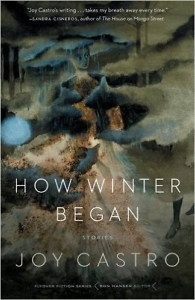 The phrase “sexual harassment,” for example, didn’t yet exist when I was a sixteen-year-old working in a factory in West Virginia in the early 1980s. I perceived what was happening to me, but I didn’t know how to describe it, or who would listen, or what to do. I told no one; I just quit my job. It’s what my essay “Hip Joints” is about.
The phrase “sexual harassment,” for example, didn’t yet exist when I was a sixteen-year-old working in a factory in West Virginia in the early 1980s. I perceived what was happening to me, but I didn’t know how to describe it, or who would listen, or what to do. I told no one; I just quit my job. It’s what my essay “Hip Joints” is about.
When Anita Hill went on national TV a few years later, it was a revelation. She was describing out loud something that hundreds of thousands of girls and women had experienced at work and silently borne. It was a watershed moment for the country. We’re having a similar moment now around sexual harassment in Hollywood. The fact that this kind of garbage behavior continues to be widespread infuriates me. Perhaps we’re at a turning point. I hope so.
Chapter 16: I recently followed you on Twitter—do you have any fears about being overtly political in such a public arena?
Castro: No. I’ve reserved all of my fear for nuclear war and climate change. In that context, being overtly political on Twitter seems like pretty small change.
Chapter 16: What are your writing goals or hopes for 2018?
Castro: I’d like to finish the novel I’ve been working on for the last four years. I love it, but it’s very challenging, like a terrible three-dimensional puzzle in which I’ve gotten quasi-pleasurably lost. Its working title is Almost Heaven, and it’s about a found-object sculptor who’s been concealing her past and needs to come clean. And it’s also about mountaintop-removal coal mining. Maybe. That’s what it’s about right now, anyway.
But I often find, as a reader, that what a novel’s “about” is the least interesting part of it; the approach and voice of the narrator are far more compelling (or not). So I don’t really know how revealing or useful it is to furnish a synopsis.
From that perspective, I guess my goal or hope for 2018 is to surprise myself on the page. Every day.

Erica Wright is the author of a new poetry collection, All the Bayou Stories End with Drowned, as well as two mystery novels. Now a senior editor at Guernica, she grew up in Wartrace, Tennessee, and received her M.F.A. from Columbia University.

